

Recommend
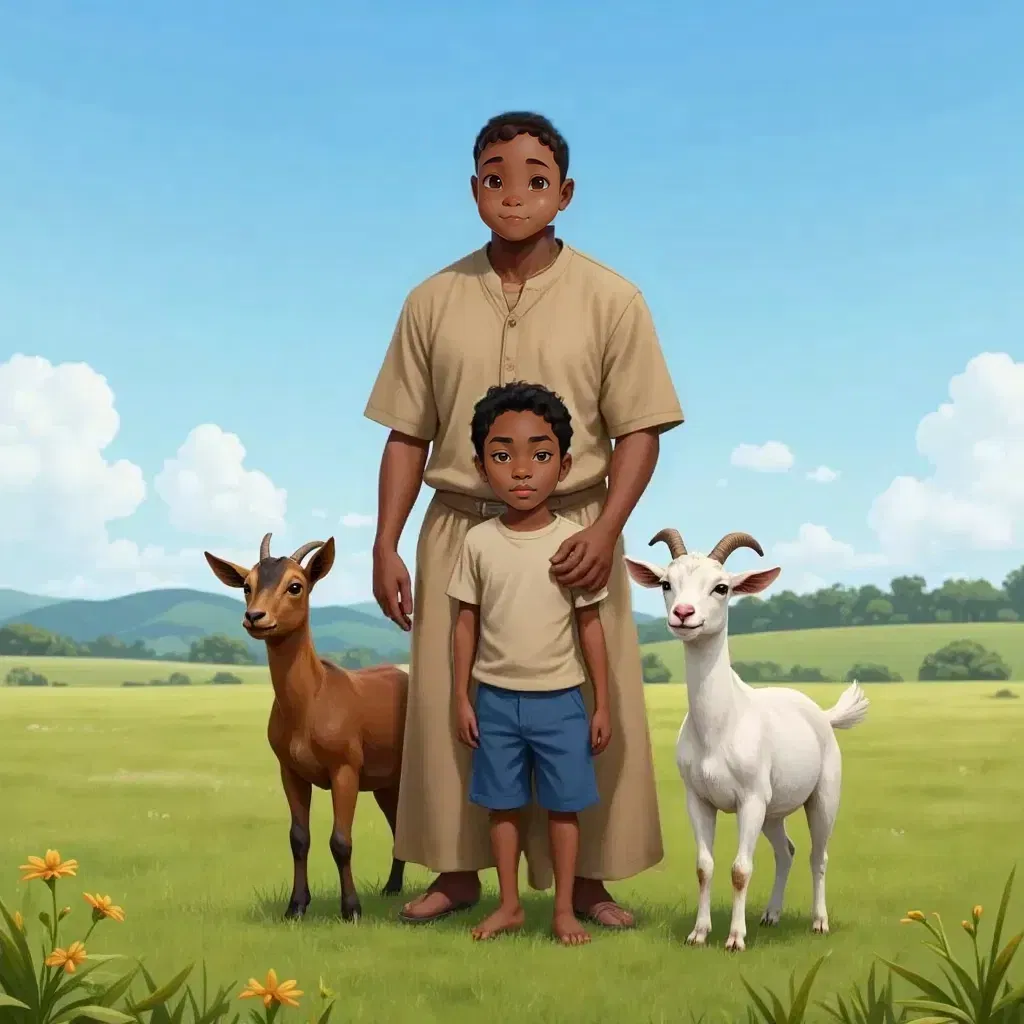
Write a 20-page Ugandan children’s story for P1 about a boy who loses his goat but finds it and learns responsibility. Page 1: This is Kato. He lives in a village in Uganda. Page 2: This is Kato. He lives in a village in Uganda. (Image: Mud house, banana trees) Page 3: Kato’s father gave him a goat. “Take good care of her,” he said. (Image: Father handing Kato a rope tied to a brown goat) Page 4: Kato took the goat to graze near the garden. (Image: Goat eating grass, Kato watching) Page 4: His friends called him. “Come play football!” (Image: Boys waving near a makeshift goalpost) Page 5: Kato tied the goat to a tree and ran to play. (Image: Goat tied loosely, Kato kicking a ball) Page 6: The goat pulled and pulled. The rope came loose! (Image: Goat freeing itself) Page 7: Kato looked back. The goat was gone! (Image: Empty rope, Kato’s shocked face) Page 8: “Where is my goat?” Kato cried. (Image: Kato searching bushes) Page 9: He asked Mama Nalongo. “Did you see my goat?” (Image: Old woman shaking head) Page 10: He asked the shopkeeper. “No,” said Mr. Sseguya. (Image: Kato at a roadside kiosk) Page 11: Then, he heard a sound: “Maaah!” (Image: Goat’s head peeking from a maize field) Page 12: The goat was eating Mr. Opio’s maize! (Image: Goat munching crops, angry farmer) Page 13: “I’m sorry!” Kato said," “I will help fix it.” (Image: Kato bowing head) Page 14: Kato and Mr. Opio replanted the maize. (Image: Both working in field) Page 15: Kato tied the goat properly this time. (Image: Double knot on rope) Page 16: His father said, “Always watch the goat. She is your responsibility.” (Image: Father kneeling to talk to Kato) Page 17: Kato never left the goat alone again. (Image: Kato sitting with goat while friends play) Page 18: The goat grew big and strong. Kato was proud! (Image: Fat goat, Kato smiling) Last Page: "THE END. What did Kato learn"? (Image: Kato feeding goat)
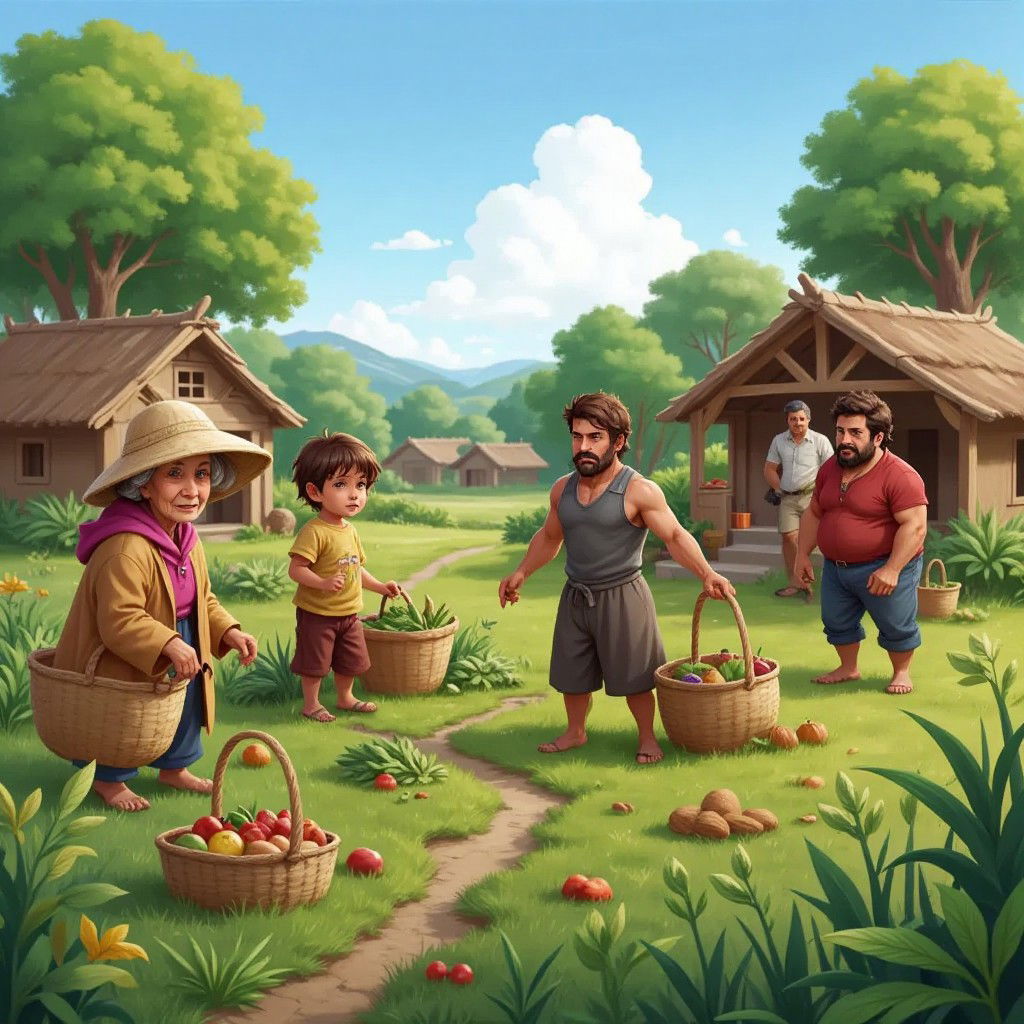
Há muito, muito tempo, antes de existirem escolas, livros e até mesmo cadernos, as pessoas viviam em aldeias e trabalhavam juntas para conseguir comida, construir casas e preparar festas. Mas havia um grande problema… os números ainda não existiam! Certo dia, a aldeia estava se preparando para uma grande festa. Eles precisavam dividir os alimentos entre as famílias, separar os bancos para as pessoas sentarem e organizar as frutas para a sobremesa. Mas como fazer isso sem contar? O chefe da aldeia olhou para todos e disse: — Precisamos de ajuda! Como podemos garantir que cada família receba a mesma quantidade de pão e peixe? Como podemos saber se todos terão um lugar para sentar? Os moradores começaram a tentar resolver a situação: Alguns tentaram comparar os alimentos colocando um monte ao lado do outro. Outros tentaram distribuir usando as mãos, mas sem saber se estavam dando mais ou menos para cada um. Alguns começaram a usar pedras para representar o que estavam distribuindo. Mesmo assim, tudo parecia confuso. Como eles poderiam se organizar melhor? Desafio para a turma: Agora, seus alunos fazem parte da aldeia! Em grupos, eles precisam pensar em soluções para os problemas sem usar números. Dê a cada grupo um desafio, como: Como dividir os peixes entre as famílias de forma justa? Como garantir que cada pessoa tenha um lugar para sentar na festa? Como lembrar quantos dias faltam para a festa sem um calendário? Depois, cada grupo compartilha sua solução. No final, você pode conduzir a reflexão: Como a invenção dos números ajudou as pessoas a resolver esses problemas?

To ask WH questions in Thai, you typically use specific question words that correspond to the English WH words. Here are some common WH question words in Thai: Who - ใคร (khrai) What - อะไร (arai) Where - ที่ไหน (thii nai) When - เมื่อไหร่ (muea rai) Why - ทำไม (tham mai) How - อย่างไร (yang rai) To form a WH question, place the question word at the beginning of the sentence. For example: Who is that? - คนนั้นคือใคร? (Khon non kru khai) What is this? - นี่คืออะไร? (Nii khue arai?) Where are you going? - คุณจะไปที่ไหน? (Khun ja bpai thii nai?)

Gemmas dream vacation would have to be going to Japan and seeing the cherry blossoms and also see mount fuji. She would like to the Doreamon cartoon. The yellow crane build and dress up in the traditional clothes

standing by the door doesn't want to go into class crying
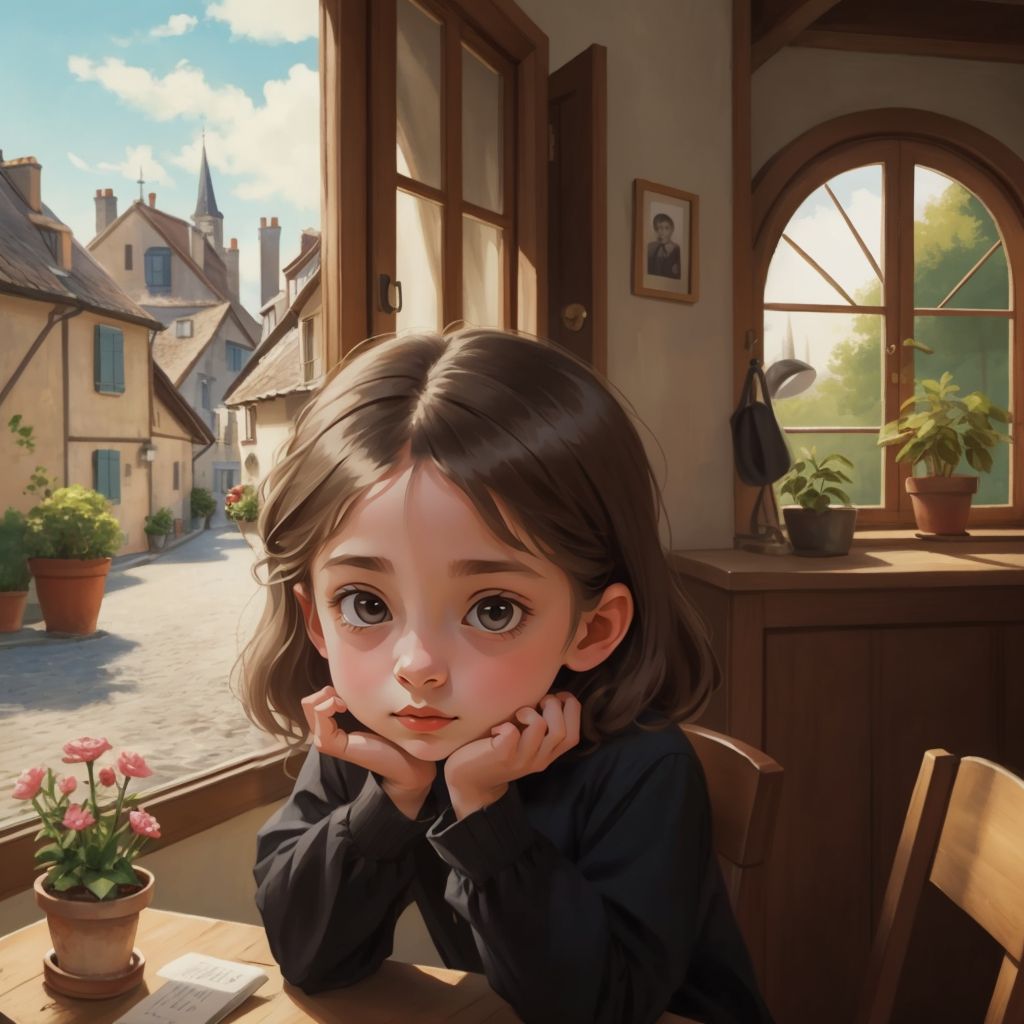
In a quiet village in France, Isabella, an orphan raised by the caring matron Miss Violetta, finds solace and purpose in ballet at Miss Violetta's studio. Despite her dedication and numerous performances, Isabella's heart yearns for the world outside, often gazing longingly through the window during practice, dreaming of the day her graceful dance will carry her beyond the confines of her studio and into the vast unknown.

Marisol, una niña de diez años, quiere hacer el pastel familiar para el cumpleaños de su madre. Ella observa a su abuela, tía y madre hacer el pastel juntas muchas veces, pero cada vez que intenta hacerlo sola, nunca sale bien. “Demasiado dulce. Demasiado salado. Demasiado seco”, dice Marisol. Marisol corre hacia su abuela confundida por la receta del pastel familiar.

a story about 2 mice that live in the gardens of a pre-school at christmas time
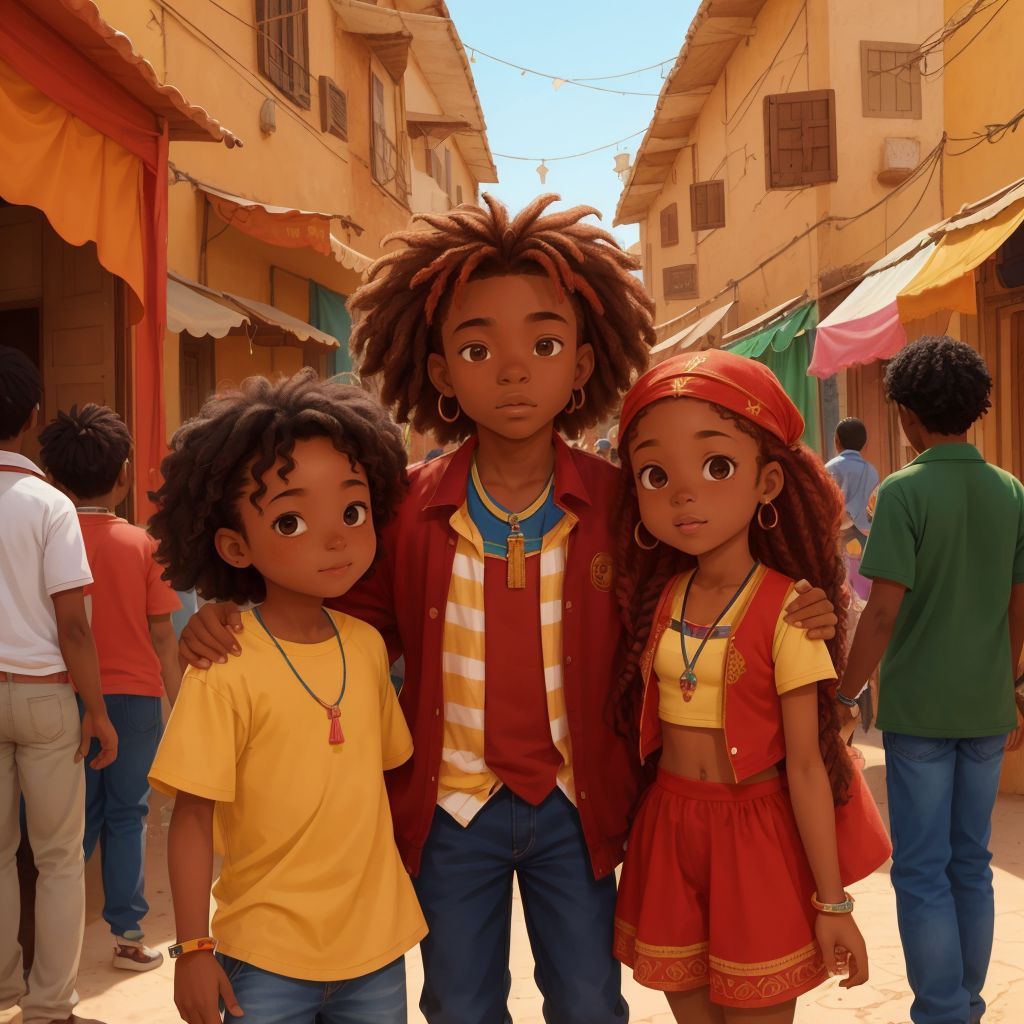
Introduction: Meet Nour and Omar, two curious friends in Morocco, fond of exploring their vibrant city's bustling marketplace. Beginning: Excited for a day of discovery, Nour and Omar venture into the lively marketplace, eager to unearth hidden treasures. Middle: They stumble upon the "Magical Wonders Emporium," meeting Amina, the quirky shopkeeper, who unveils enchanted items sparking comical adventures. End: Saying goodbye to Amina, Nour and Omar depart, realizing that true magic lies in friendship and the thrill of exploration. Conclusion: Their day ends with memories of enchantment, as Nour and Omar return home, uplifted by the magic of friendship.

"Little Blessings: Stories of Identity, Spirit, and Manners" is a heartwarming collection that illuminates the essence of a child's identity in Christ, the virtues of the Fruits of the Spirit, and the significance of good manners. Through relatable narratives, children discover their unique value and purpose as beloved children of God in "Identity in Christ." In "Fruits of the Spirit," they embark on a magical adventure learning about love, joy, and self-control, enriching their lives and relationships. Lastly, "Manners" offers delightful tales emphasizing kindness and respect. Filled with love, joy, and valuable lessons, "Little Lights" guides young hearts on a path of faith, character, and kindness.
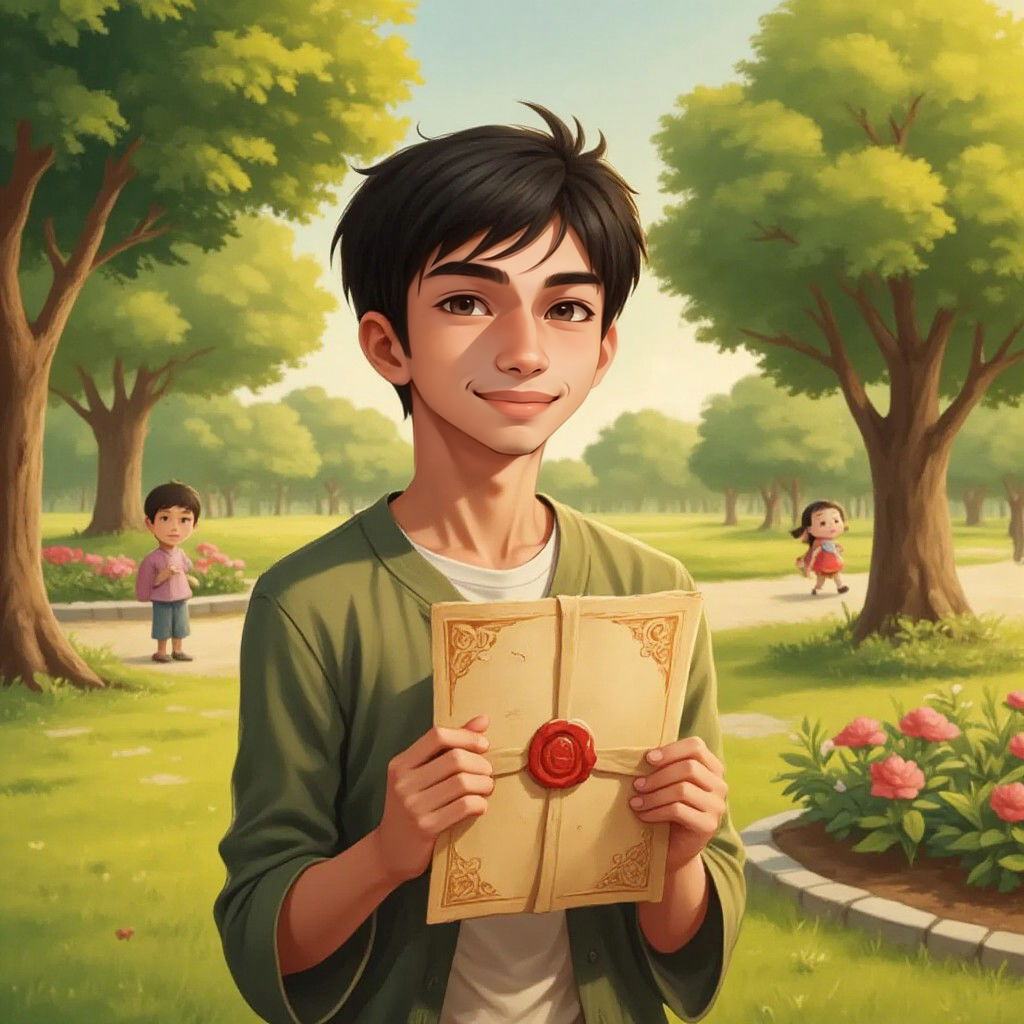
Mathematics is often seen as a daunting world, a labyrinth of numbers and symbols that can feel like a foreign language. Yet, for some, it is like poetry, revealing its abstract beauty through patterns, theories, and paradoxes. In these hidden depths lies a secret known to few—a boy named MJ is about to discover the heart of this unique language, guided by a quirky and enigmatic figure, Professor Pi.
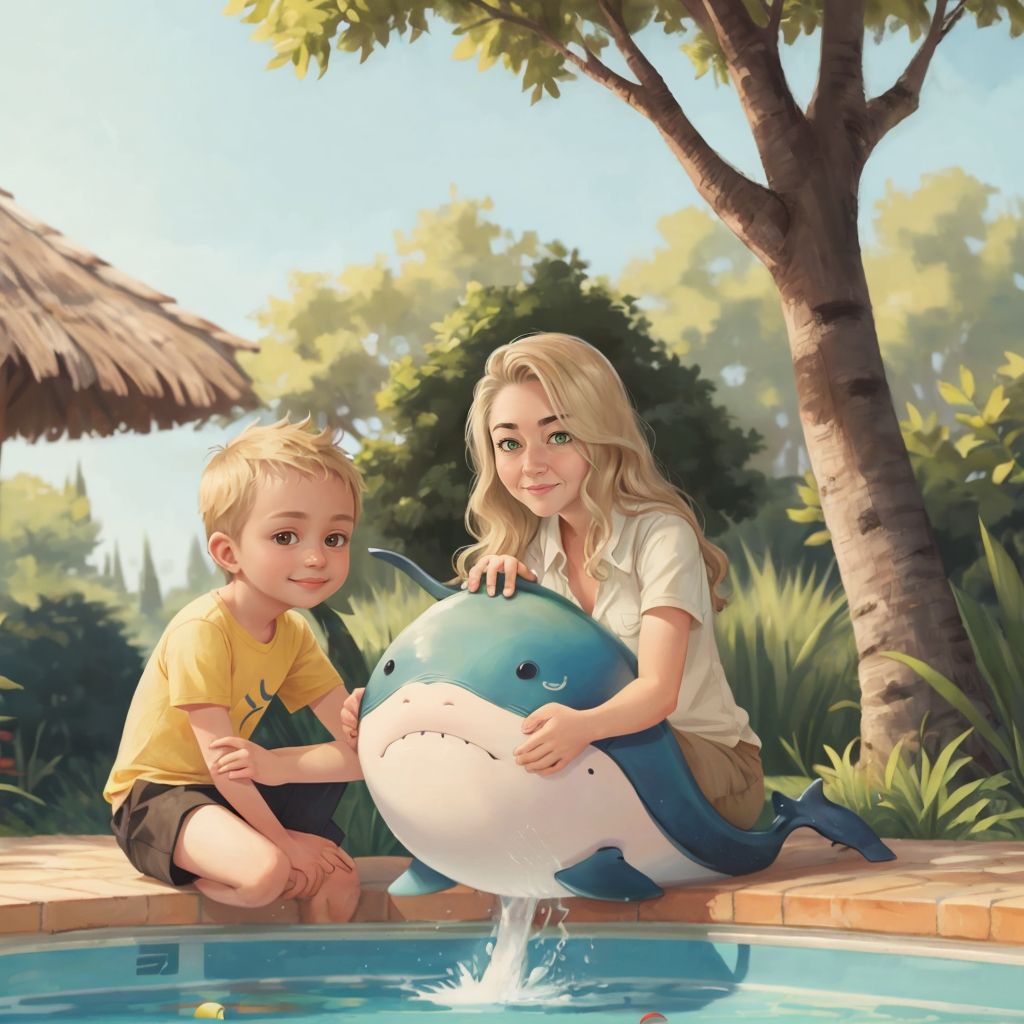
Cooper Frees Willy the Orca Whale by training him to jump over the rock wall from the aquarium to the ocean!

The book contains the secret knowledge of the magical sales techniques of business process optimisation training using neural networks

Bernie and Pat are two 10 year olds who are very passionate about the environment. One day Bernie is concerned because they are cutting down trees around her home. Their environmental club at school took a trip to the forest for a cleanup were Bernie and Pat meet a talking tree.
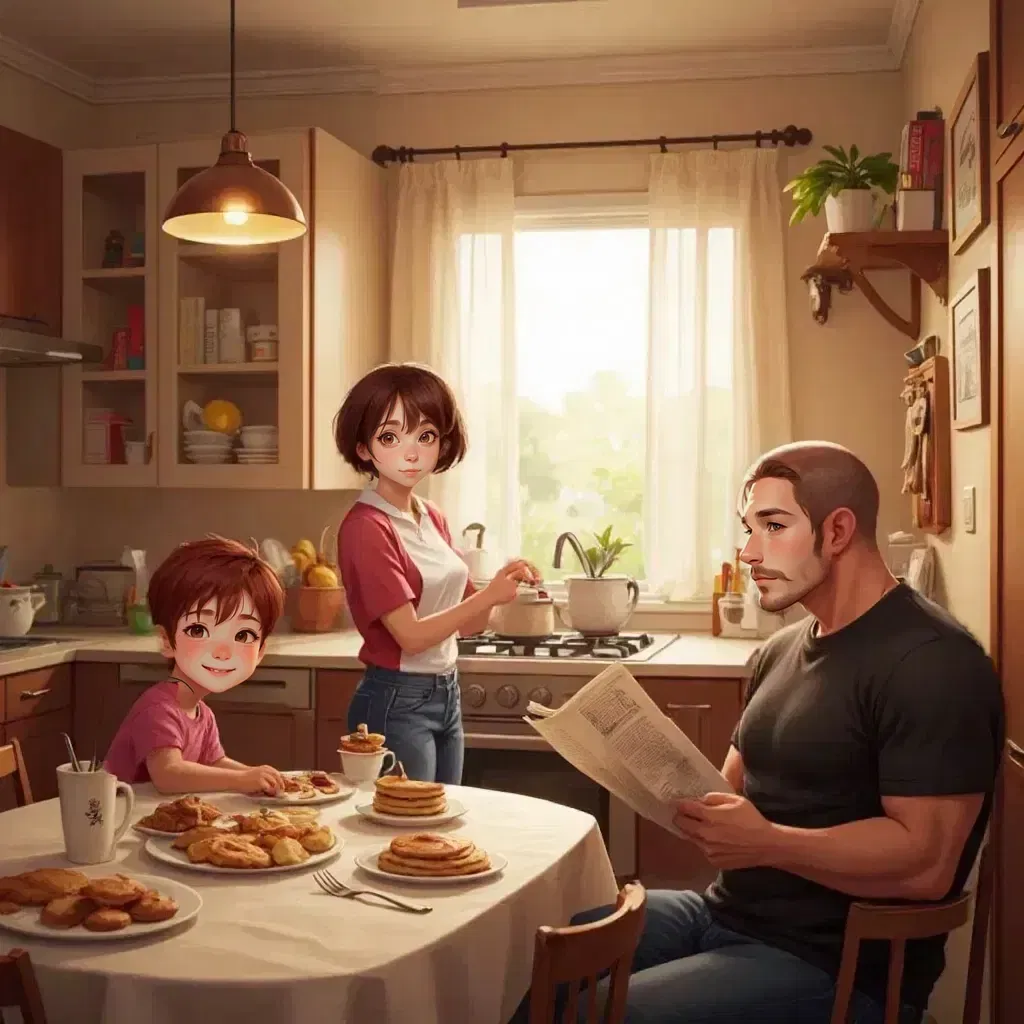
Wyn wins over his parents by proving to them he is a hero by extinguishing a fire that almost burns down the town inn.
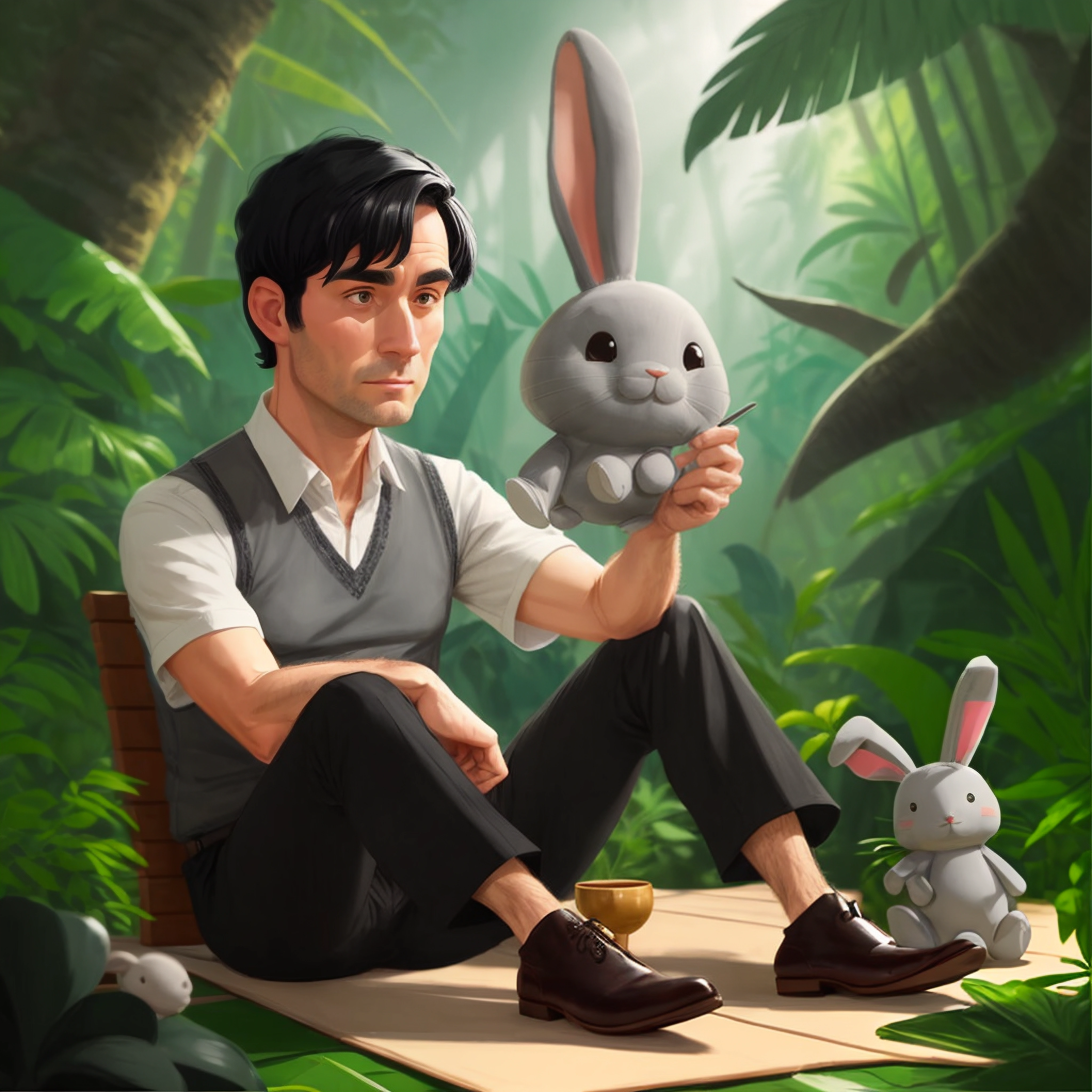
A very small boy and his best friend Jacks a stuffed toy bunny are trying to get to the jungle. They try to think of different ways but cannot think of a way. The very small boy wishes on a star and finally gets to the jungle.
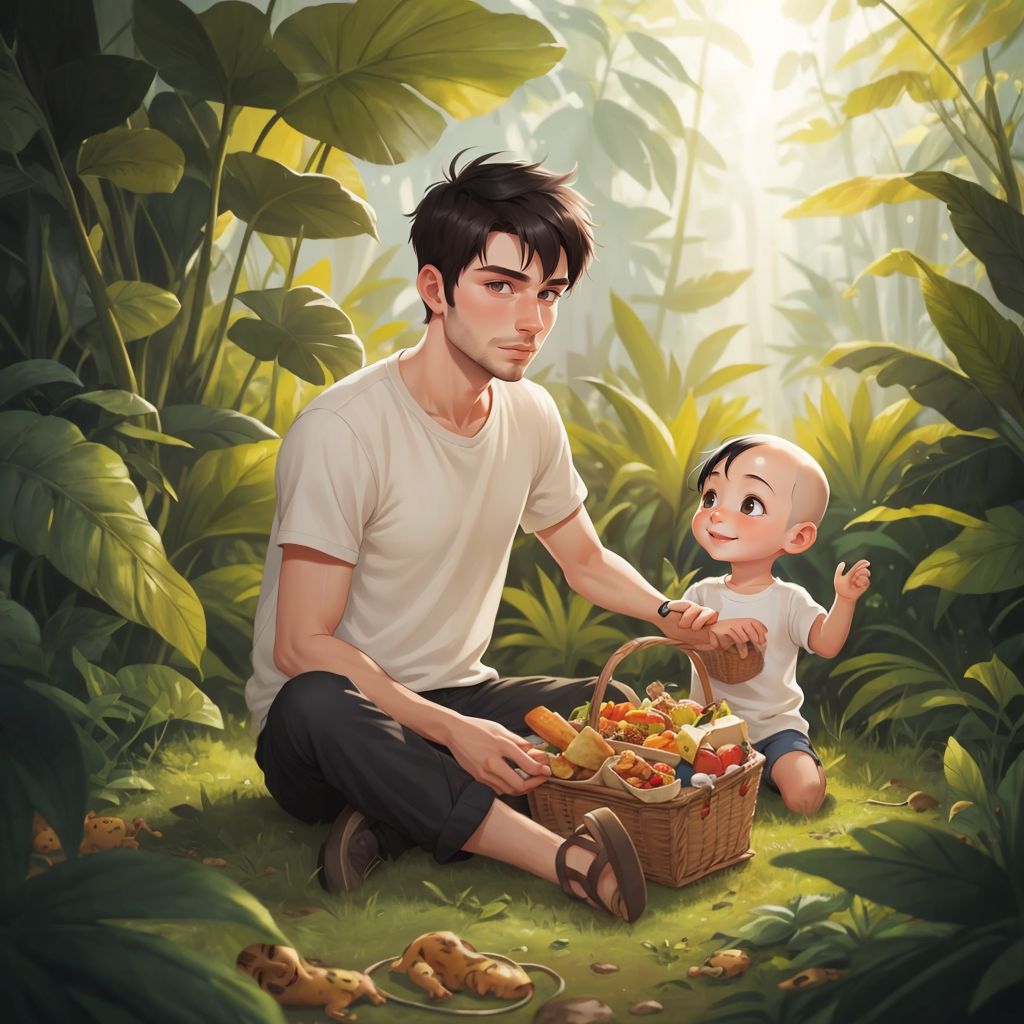
Adventure with dad and child

A 7 year old girl finds a toonie on her way to school, does not have pockets so puts it in her backpack. She is excited as it is fun Friday. She looses the toonie at recess. She is sad. A peer comforts her and offers to help find the toonie. They work together and find the toonie. She then uses it to buy two popsicles one for her and one for her new friend.

The book is a tale about the verb to be in the Present Simple. Am, is and are are the main characters. Am makes friends only with I, is makes friends with he, she, it. Are makes friends with you, we, they
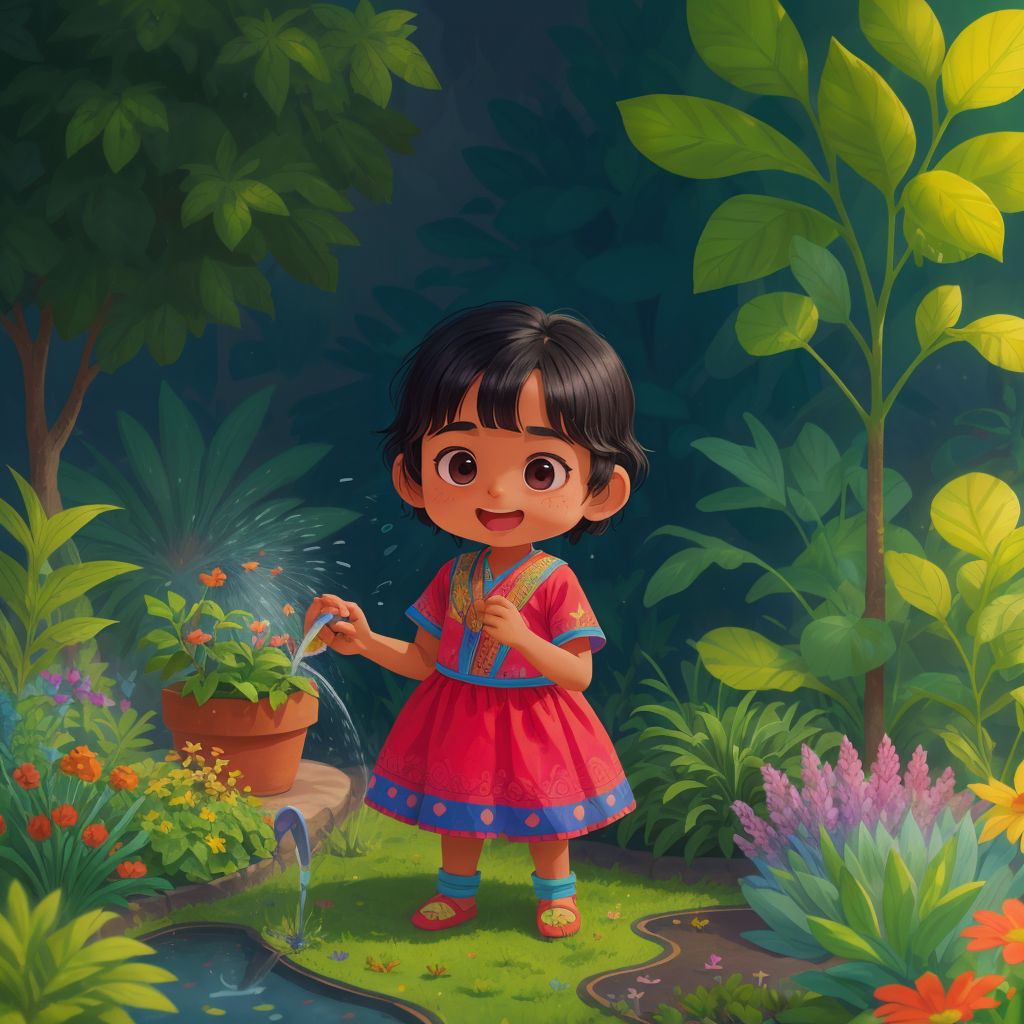
"Zahra's Special Garden" is a heartwarming tale of kindness and generosity set in a picturesque town. Young Zahra, known for her compassionate nature, tends to her garden with love and care. When she encounters a weary traveler on a scorching summer day, Zahra's simple act of offering water leads to a friendship and a special gift. With the magical flower seeds she receives, Zahra transforms her garden into a colorful oasis that not only delights the town but also serves as a reminder of the power of kindness to inspire and uplift others. Through Zahra's story, readers are reminded that even the smallest acts of kindness can create beauty and spread joy in the world.
